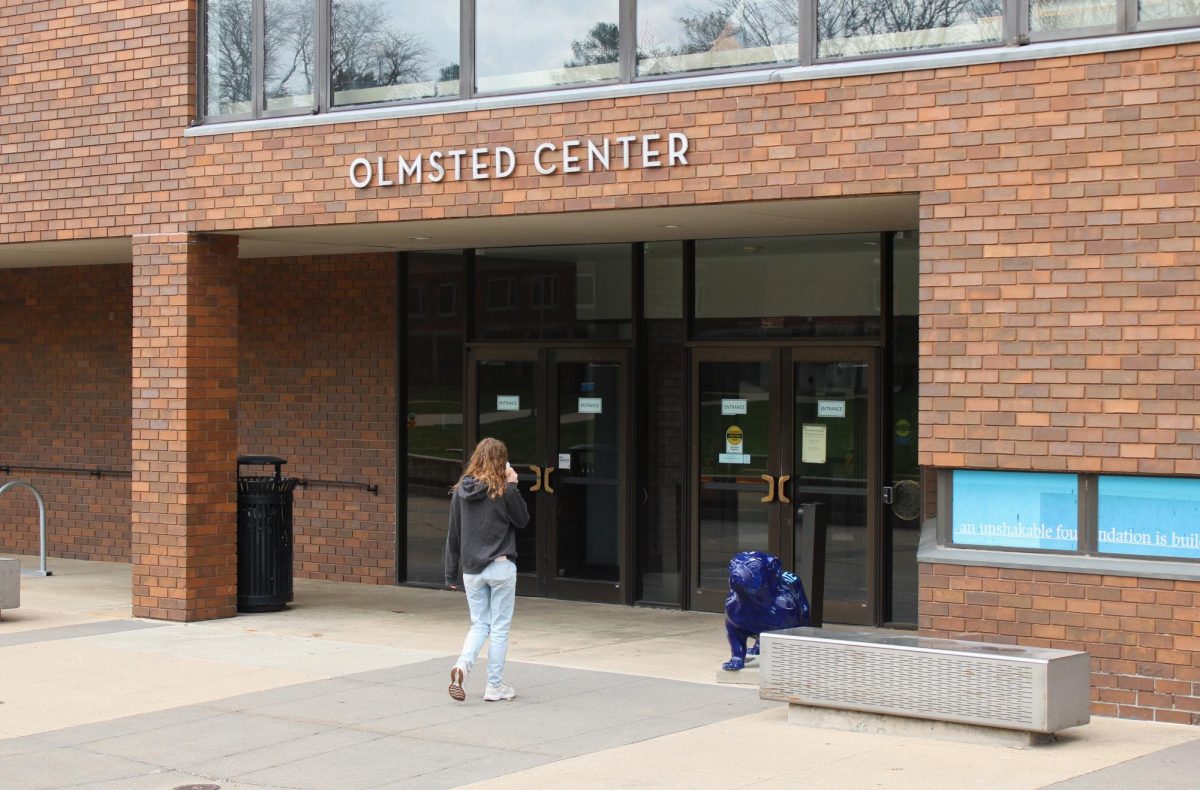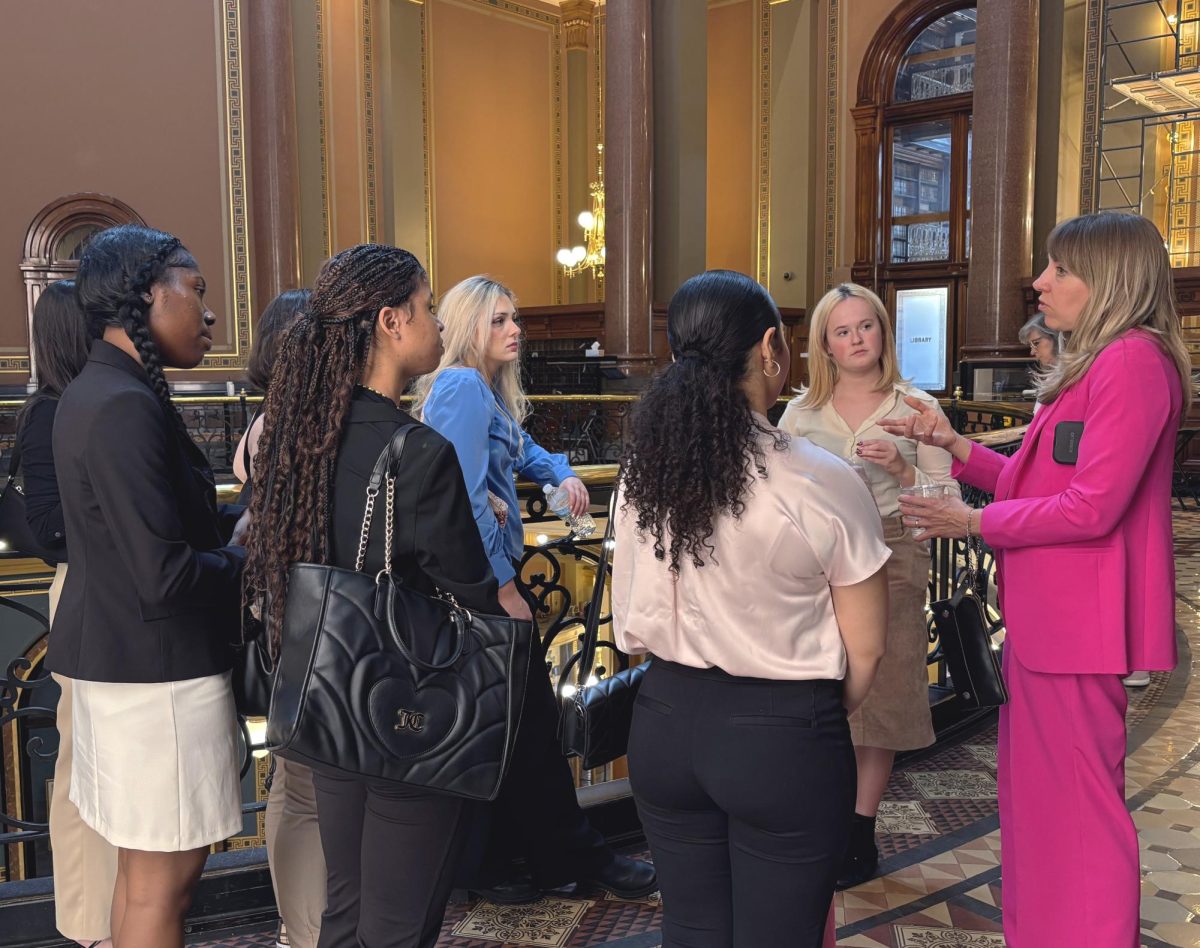Photo by Luke Nankivell, photo editor
Professor Debra DeLaet led the 28th annual Luther W. Stalnaker lecture on Tuesday in Drake University’s Sheslow Auditorium. DeLaet, chair of the politics and international relations department at Drake, delivered a speech titled “Longing, Loathing and Nostalgia for Community: Local Experience as a Lens for Understanding Global Human Rights.”
“I started out with some personal reflections about things I value about community and some of the benefits and the fondness I have for this teeny-tiny town that I grew up in.” DeLaet said. “I follow those reflections with reflections of what I call the underbelly of small-town life. Despite all of the many good things I experienced there, I saw and experienced a lot of bad things, mostly revolving around racism, sexism and homophobia.”
The beginning of DeLaet’s lecture transported the listener to her small hometown of Versailles, Ohio. She shared the tender memories that shaped her longing for community as well as the bitter memories that ultimately brought about loathing for the same community. Using her hometown as an example, DeLaet explained how the town’s underlying culture of hate can be used to examine human rights issues around the world.
“All societies everywhere are pluralistic,” DeLaet said. “My criticism of some work in human rights scholarship that’s more relativist in nature is that we see, value and argue for recognition of pluralism in our own society, but when we look outward, we tend not to recognize that pluralism. In taking that position, we disadvantage vulnerable groups and minorities in other cultures.”
DeLaet went on to outline what she focuses on in human rights scholarship — a sub-section she calls “human rights in the everyday.” Her work is reflective of her small town experiences as it pertains to the subtle and not-so-subtle cultural practices that take advantage of minorities. These violations, though not as shocking or alarming as mass genocide, torture or political disappearances, still present a very real threat to human rights in societies around the globe.
Attendants to the lecture had positive responses to DeLaet’s moving and thought-provoking discourse. By reflecting on her personal experience with small-town life, DeLaet offered great insight and helped attendants relate to the subject.
“I thought it was great and very insightful,” said first-year elementary education major Taylor Burkhead.
“I really related to the town that I grew up in,” said senior politics and sociology major Courtney Howell. “A lot of students at Drake are from smaller towns, so they can relate as well.”







Debra DeLaet • Oct 12, 2012 at 1:19 pm
I want to thank the reporter for his thoughtful and generally accurate summary of my lecture. I do feel compelled to write and offer one important correction. The author of this story suggests that my lecture described my hometown as having an “underlying culture of hate” that can be used to examine human rights issues around the world. I do not believe my lecture included any language attributing the problems I described to a “culture of hate” and regret if anything I said gave that indication. In fact, one of the major themes of my lecture was that the small town in which I grew up– like communities everywhere– is characterized by pluralism of identity and belief. Although I certainly discussed a number of experiences and observations that I characterized as demonstrating the “dark side of community”, I also stressed that cultural practices and beliefs that are viewed by human rights scholars and activists as problematic exist in a context of families where parents are, following the anthropologist Gerry Mackie’s formulation, “good people who love their children.” Having just returned from my hometown where I travelled to attend my father’s funeral, and where many members of the community reached out to support our family at a very sad time, it is more important than ever to me that this distinction be recognized.